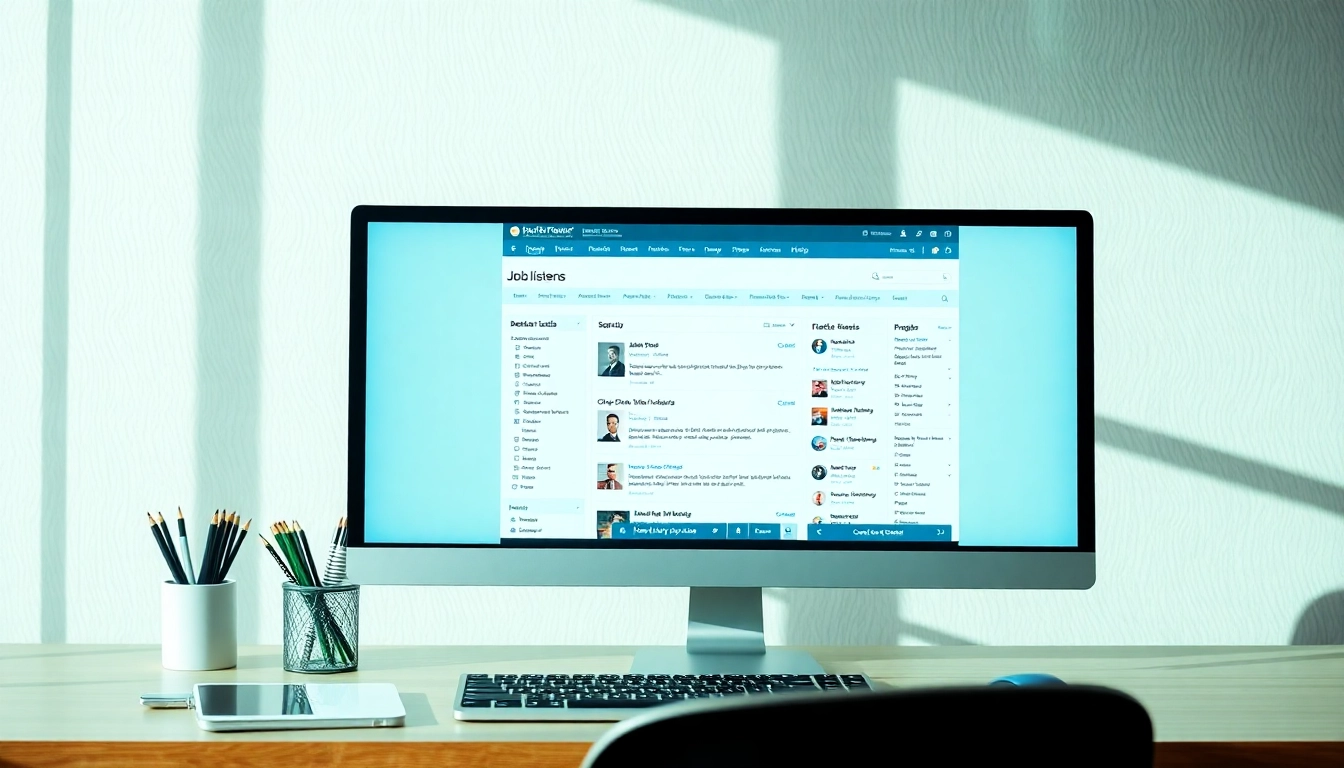Unlocking Success in the World of Mission Freelance Full Remote Work
In today’s rapidly transforming digital landscape, freelance professionals are increasingly seeking mission freelance full remote opportunities that offer flexibility, lucrative pay, and the ability to work from anywhere. The surge in remote work adoption, accelerated by technological advancements and global events, has opened up unparalleled avenues for talented freelancers across diverse industries. This comprehensive guide explores the key strategies, tools, and future trends to help freelancers secure high-paying full remote missions that elevate their careers and align with their lifestyle preferences.
Understanding the Benefits and Challenges of Mission Freelance Full Remote Work
Advantages of remote freelance missions and flexibility
One of the most appealing aspects of mission freelance full remote work is the unparalleled flexibility it offers. Freelancers can choose projects that match their skills and interests, work during their most productive hours, and avoid lengthy commutes. This flexibility fosters better work-life balance, enhances productivity, and allows for personal pursuits and ongoing skill development. Moreover, remote work empowers freelancers to broaden their client base beyond geographical constraints, opening doors to international opportunities with companies willing to pay top dollar for specialized talent, often ranging from €600 to €1200 per day based on expertise and complexity.
Common obstacles and how to overcome them
Despite its many benefits, full remote freelancing presents challenges such as isolation, difficulty in maintaining boundaries, and issues with communication. Freelancers often struggle with inconsistent income, securing consistent projects, or getting lost in competitive marketplaces. To mitigate these hurdles, establishing a dedicated workspace, setting clear boundaries, and adopting effective time management strategies are essential. Utilizing established communication tools like Slack, Zoom, or Trello ensures smooth collaboration and project tracking. Building a reliable reputation through professional proposals, timely delivery, and quality work helps foster long-term client relationships, critical for sustaining remote freelance careers.
Assessing the suitability for your skills and lifestyle
Not every freelancer or skill set aligns perfectly with the full remote model. Technical fields such as web development, UI/UX design, data science, and DevOps are particularly well-suited due to their digital nature. However, assessing your personality, discipline, and communication skills is vital to thrive in remote environments. Self-motivation, excellent communication, and organizational skills determine your success. Additionally, evaluate your lifestyle—if independence and flexible hours motivate you, remote freelancing could be a perfect match. Conversely, if you prefer the dynamics of an office environment, hybrid or on-site roles might be more suitable.
Key Strategies to Find High-Paying Mission Freelance Full Remote Projects
Optimizing your profile for remote job platforms
In highly competitive markets, a well-optimized freelancer profile is crucial. Focus on crafting a compelling headline that highlights your core competencies and remote experience. Use keywords relevant to your skills and the remote work niche to improve visibility in platform searches. Showcase detailed summaries that emphasize your ability to work independently, meet deadlines, and communicate effectively across time zones. Including testimonials and case studies reinforces your credibility. Completing your profile with professional photos, certifications, and relevant portfolio links ensures you stand out to potential clients.
Building a compelling portfolio for remote opportunities
An extensive and diverse portfolio demonstrates your capabilities and reassures clients of your expertise. Showcase projects that reflect remote work scenarios, highlighting your adaptability to various technologies and industries. Incorporate metrics such as project outcomes, client satisfaction, and efficiency improvements. Use visual elements like screenshots, prototype links, or demo videos. Regularly updating your portfolio with new projects ensures it remains current and relevant, increasing your chances of attracting high-paying clients seeking specialists.
Networking effectively within remote work communities
Networking remains a cornerstone of success for remote freelancers. Join industry-specific online communities, forums, and social media groups on platforms like LinkedIn, Reddit, or specialized Slack channels. Participate actively by sharing insights, offering advice, and engaging with discussions. Attending virtual conferences, webinars, and meetups also helps in forming genuine relationships that can lead to referrals and collaborations. Building a reputation within these communities often results in invitations to exclusive projects or direct referrals for high-paying missions.
Best Practices for Applying and Winning Mission Freelance Full Remote Assignments
Crafting tailored proposals that stand out
Your proposal is your first impression—make it count. Customize each application to address the specific needs of the client and demonstrate an understanding of their project. Highlight relevant experience, showcase your portfolio pieces, and propose clear solutions. Use concise language, include a personalized greeting, and showcase enthusiasm for the project. Providing a well-structured proposal that aligns your skills with client requirements enhances your chances of securing the mission. Including a brief overview of your remote work experience reassures clients of your ability to deliver independently and communicate effectively.
Navigating client interviews and negotiations remotely
Remote interviews often involve video calls, requiring professionalism and clarity. Prepare by researching client background, project details, and industry trends. Be ready to discuss your workflow, communication habits, and time management strategies. During negotiations, set clear expectations regarding scope, timelines, deliverables, and payment terms. Don’t undervalue your expertise—know your TGV (daily rate) range and be prepared to justify your rates with specific achievements or credentials. Transparent communication and establishing mutual trust are essential for securing high-paying assignments.
Setting clear expectations and delivering quality work
Once engaged, clarify project milestones, deadlines, and review procedures upfront. Regular updates and proactive communication prevent misunderstandings. Use project management tools like Asana, Jira, or Notion to track progress visually. Strive for excellence by adhering to agreed-upon scopes and providing deliverables that exceed expectations. Building a reputation for reliability and quality increases the likelihood of repeat work and positive referrals, fostering ongoing success in remote missions.
Tools and Resources to Manage Mission Freelance Full Remote Projects Successfully
Essential collaboration and communication tools
For seamless remote work, leverage tools like Slack for instant messaging, Zoom or Microsoft Teams for meetings, and Google Workspace or Notion for document collaboration. Version control systems like GitHub or GitLab are indispensable for coding projects. Cloud storage solutions such as Dropbox or OneDrive facilitate document sharing. Choosing the right tools tailored to project needs ensures communication remains uninterrupted and project workflows stay organized.
Time management and productivity tips for remote freelancers
Remote freelancers must cultivate discipline. Implement techniques like the Pomodoro Technique or time blocking to organize work sessions. Dedicate specific hours to deep work, and set boundaries to switch off after work hours. Regularly reviewing priorities and progress todos help maintain focus. Using productivity apps like Toggl or Clockify helps track your hours, providing data to optimize workflows and justify your rates with detailed reports.
Measuring success and building long-term client relationships
Establish KPIs such as client satisfaction, project delivery timelines, and earning metrics to evaluate performance. Seek feedback after each project to identify improvement areas. Maintaining professionalism, consistency, and high-quality outputs builds trust and fosters long-term relationships. Satisfied clients not only provide repeat missions but also become advocates, helping you access higher-paying opportunities in an increasingly competitive market.
Future Trends and Opportunities in Mission Freelance Full Remote Work
Emerging sectors and technologies for remote missions
Automation, AI, machine learning, and cybersecurity are rapidly expanding fields offering high-value remote freelance missions. The surge in data-driven decision-making fuels demand for data scientists, AI engineers, and cloud specialists. Sectors like finance, healthcare, and digital marketing are increasingly relying on remote freelance expertise to innovate and scale operations efficiently. Keeping abreast of these emerging industries ensures freelancers remain competitive and can tap into premium-paying projects.
Upskilling to stay competitive in remote freelancing
Continuous learning is vital. Enroll in online courses, attain certifications, or participate in hackathons relevant to your technical niche. Specializing in less saturated, niche technologies—like Svelte, Rust, or DevOps—can command premium rates. Also, soft skills such as client management, negotiation, and communication are equally crucial for remote success. Platforms like Coursera, Udemy, and LinkedIn Learning provide accessible options to upskill.
Adapting to evolving client needs and market dynamics
Clients increasingly seek freelancers who can deliver end-to-end solutions, combining technical expertise with strategic consulting. Flexibility and agility are essential, along with an understanding of market trends. Building a versatile skill set and maintaining a proactive approach to market changes allow freelancers to stay relevant and capitalize on new remote mission opportunities.



